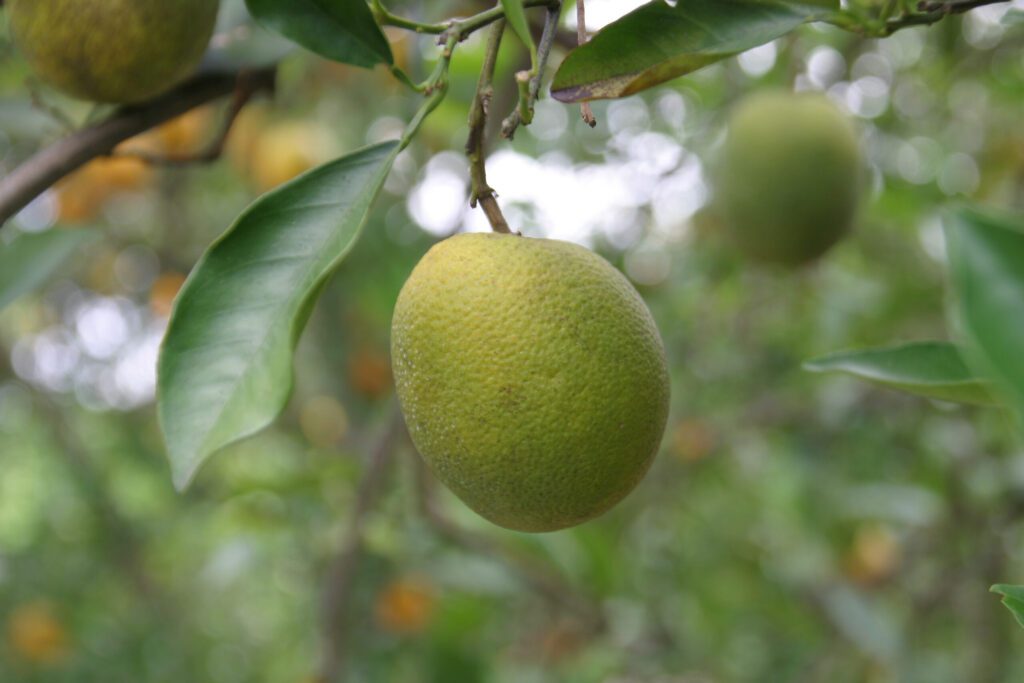University of California Scientists Find Treatment They Say Will Effectively Kill Citrus Greening
by HEATHER MACOHVINA
Citrus Greening, or Huanglongbing (HLB), was first observed in South Florida infecting backyard citrus in 2005. By the beginning of 2009, the disease had spread to every major citrus producing county in Florida. The Asian citrus psyllid is a carrier of the disease, transmitting it to healthy citrus plants through feeding. Plants and materials can also transmit the bacteria even when no psyllids are visible making it a huge threat to citrus worldwide.
The estimated damage over the past five years in Florida amounts to more than $1 billion per year, with nearly 5,000 jobs lost, according to a University of Florida study published earlier this year on the management strategies and economic impacts of citrus greening.
For over a decade, growers and researchers have been looking for effective treatments against this bacterium. However, there are limited strategies or treatment options to date that are proven to effectively control citrus greening in a feasible and sustainable approach.
Scientists at the University of California, Riverside (UCR) have discovered a new treatment they say will effectively kill the citrus greening bacterium with a naturally occurring molecule. This promising antimicrobial peptide is found in the fruit of the greening-tolerant Australian finger-lime tree. UCR Plant Molecular Geneticist Dr. Hailing Jin found the peptide by examining citrus plants known to have an innate tolerance to the bacteria causing this disease. She isolated the genes found to contribute to this natural immunity, one of which produces the crucial peptide. This discovery offers a big advantage over the antibiotics some Florida growers are currently using in hopes of saving their trees from greening. Most antibiotics are temperature sensitive, so their effects are greatly reduced when applied in hot weather. Since citrus thrive in warmer environments, this is an obvious obstacle for growers and a costly one, too. This peptide is proven to withstand heat up to 130 degrees Fahrenheit, remaining stable and effective. It is highly cost effective for growers because it will only need to be applied a few times per year.
Les Dunson of Dunson Harvesting Inc. is keeping an eye on the developing research. His company offers complete citrus grove management services for absentee owners of citrus groves, grove care, marketing services, and hauling from the field to processing. “I am very hopeful as it could change the direction of the industry in a very positive way if it were to come to fruition soon,” Dunson says of the recent hope for a cure.
This UCR technology is still in the early stages but has promising results in the laboratory and greenhouse demonstrating that citrus-derived, stable antimicrobial peptides (SAMPs) were effective in preventing HLB infection on young citrus trees and in treating young HLB-infected trees. In Jin’s trials, the bacteria was drastically reduced within the plants, with leaves looking healthy again just a few months after treatment. Unlike antibiotic sprays, the peptide is stable, easy to manufacture, and much safer to use than other synthetic chemicals.
The peptide can be applied by injection or foliar spray, and moves systemically through the plant, possibly making the treatment stronger and more effective. It also can be developed into a vaccinelike spray to protect young healthy plants from infection, as it is able to induce the plants innate immunity to the bacteria.
Extensive field testing is required to verify the efficacy of SAMP technology in real production settings and with trees of different ages and levels of infection. The team at Citrus Research and Development Foundation (CRDF) recently had two conference calls with Jin about the latest research and are impressed with its potency.
“We are anxious to see how it works as a potential therapy for HLB-infected trees of fruit-bearing age,” says Rick Dantzler, COO of CRDF, a nonprofit corporation organized under Florida State laws as a Direct Support Organization of the University of Florida. The organization is headed by a 13-member Board of Directors that includes individuals from industry, academia, and government.
“Those studies begin this Fall in Florida and will tell us a lot,” Dantzler concludes.
UC Riverside has entered into a commercial licensing agreement with Invaio Sciences. Together, they will work to further enhance this treatment with proprietary injection technology designed by Invaio, to ensure the treatment is delivered efficiently.
This technology still requires a number of years of research and development before being available to growers. Invaio Sciences expects that a minimum of 2 years of efficacy and safety trials will be required to generate the data required.
There may be opportunity for citrus growers to participate in field trials during the development of a product by Invaio. All such participation will be coordinated by Invaio Sciences. Prior to getting this technology into the hands of growers, however, Invaio will need to scale the production to generate sufficient quantities of the formulated product. Invaio expects that within a year, this may be possible. Furthermore, a cost effective and scalable manufacturing process is under development by Invaio Sciences to provide a sufficient and affordable supply of the formulated SAMP to growers.
While the nature and source of the natural peptide from citrus infers a product that will be safe for growers, consumers and the environment, the technology will still be evaluated for safety following guidelines established by the US EPA, in order to receive full regulatory approval.
Citrus Greening is the most destructive disease of citrus, threatening the survival of the industry. Dr. Hailing Jin has secured a four-year grant from the U.S. Department of Agriculture-National Institute of Food and Agriculture (USDA-NIFA) to continue study on this project, now titled Develop therapies using a novel class of citrus-derived dual-functional antimicrobial peptides to cure HLB trees and to protect healthy trees from infection. As this research progresses and matures, Jin will continue to monitor and review progress in potential therapies, new HLB-resistant varieties, better psyllid control strategies and more.

